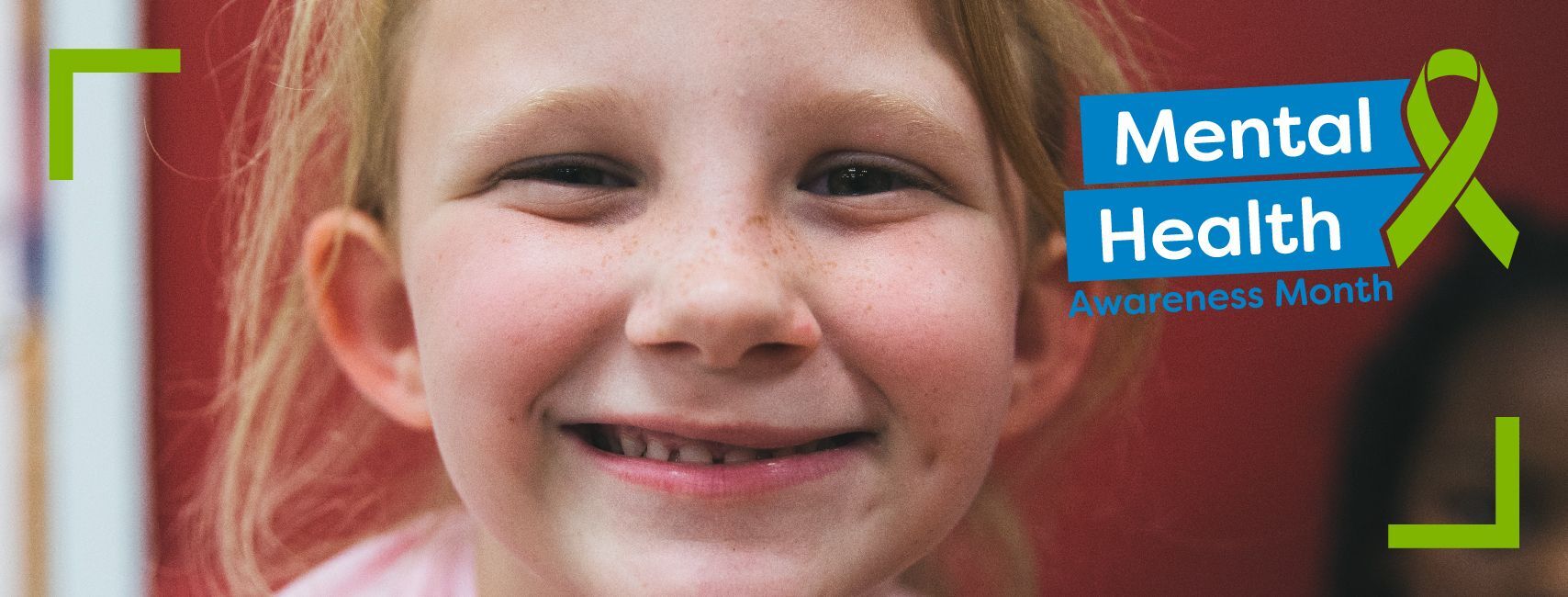Is My Child OK? Warning Signs Kids and Teens are Stressed
Posted 06/16/2020 by Boys & Girls Clubs of America in Parent Resources. This article was previously published on 10/18/2018.
How to Tell if Your Kid is Struggling – Plus 5 Ways You Can Help
The COVID-19 pandemic brought about many changes to daily life, and even years into this pandemic, kids know that things are different. Like adults, kids and teens experience stress, too. While small amounts of stress are a normal part of life, some young people may have worrisome responses to disrupted routines, school closures, and shifting policies around health, safety and learning. Many young people are beginning to feel the multi-year impact of missed milestones, falling behind academically, social disconnection and loss.
While it may be some time until our nation can measure the full effects of the pandemic on kids and teens, we do know that the last few years have exacerbated existing mental health issues. In fact, in the United States there is an ongoing youth mental health crisis.
Parents, family members and mentors are often the first to recognize signs of stress in children and help them learn coping skills to navigate challenging times.
Physical Signs and Emotional Symptoms of Stress
How do kids and teens show they're stressed? Stress can show up in physical, emotional and behavioral ways. These signs are relatively consistent throughout children of all ages; however, some indicators are less obvious than others. Pay special attention to any sudden shifts in behavior or unusual complaints your child brings up to you.
Physical signs of stress in children
- Headaches
- Upset stomach
- Chest pain
- Heart palpitations or increased heart rate
- Insomnia
- Nightmares
- Bedwetting
- Decreased appetite, comfort-eating, or bingeing
- Pretending to be sick to avoid activities
Emotional symptoms of stress in children
- Anxiety
- Mood swings
- Restlessness
- Clinginess
- New or recurring fears
- Increased crying, anger, stubbornness, or aggression
- Decreased concentration or motivation
- Emotional overreactions to minor incidents
- Regressing toward comforting behaviors from early childhood (i.e. thumb-sucking, nail-biting, sleeping with a stuffed animal)
- Social isolation, withdrawal, or unwillingness to participate in formerly enjoyed activities
Common Stressors in Children and Teens
If you notice any of the physical, behavioral or emotional symptoms of stress, take a minute to consider what may be causing these reactions. Stress in children is commonly caused by significant life changes, both positive, like starting a new grade, and negative, like family turmoil or classroom bullying.
To help you troubleshoot for possible causes, we’ve listed common familial, academic and social stresses that children of all ages can experience. While you’re reading, remember that all kids are unique in what they find stressful. Younger children, preteens and teens react differently to triggers in their environment. So, an incident causing stress to an 8-year-old boy may not trouble his 15-year-old sister.
Potential stressors for kids of all ages
- Conflict with friends, bullying, and peer pressure
- Changing schools
- Struggling in school (i.e. curriculum, grades, homework, socializing)
- Balancing responsibilities (i.e. school and extracurricular activities)
- Disappointing their parents
- Parental divorce or separation
- Financial difficulties within the family
- Unsafe or precarious living situation
- Potential stressors for children
- New experiences and places
- Being away from home
- Performing in front of others (i.e. sports, speeches, recitals)
- Getting picked last for sports teams
- Perceived dangers (i.e. kidnapping, fires, burglars, natural disasters, the dark)
Potential stressors for preteens and teens
- Going through puberty and bodily changes
- Poor self-esteem and negative thoughts about themselves
- Fear of the future (i.e. going off to college, getting a job)
- Cyberbullying
- Romantic relationships and dating
- Pressure to try drugs and alcohol with friends
How to Help Alleviate Childhood Stress
- Ensure your child feels safe. When faced with parental separation, a precarious living situation or illness or death in the family, kids of all ages may begin to question their physical security and adults’ ability to take care of them. During these instances, it’s important to reassure the child that you will keep them safe and loved, and then take the necessary steps to ensure you can uphold your promises.
- Talk to your child. Communicate in an open, supportive manner. Ask your child directly how they’re feeling and really listen to their answers. No matter what they tell you, remember to stay calm and avoid making them feel judged or self-conscious. Also, don’t get upset if your child can’t or won’t open up. Some kids need more time and encouragement than others. Younger children typically don’t have the vocabulary necessary to say “I feel stressed,” so they will use other words like “scared,” “sad,” “confused,” or “mad.” Meanwhile, preteens and teens may say dismissive things about themselves like “I can’t do anything right,” “no one likes me,” or “I have no friends.” Gently prompt the child to keep talking and try to pinpoint the driving force behind these statements. Emotional check-ins can be fun and easy too.
- Develop healthy coping methods. Kids often aren’t equipped with the tools needed to lower their stress levels. Teaching mindfulness techniques or breathing exercises can be very beneficial in promoting relaxation. Additionally, you can explain how physical exercise can help combat the feeling of stress. Promoting a healthy lifestyle with balanced meals, time outdoors, and limits on their screen usage, including TV, cellphone, and laptops, is also recommended.
- Spend quality time together. If your child is going through stressful changes in their life, show them that you’ll always be their pillar of support. Try to reduce their anxiety by planning fun activities together and regularly offering praise, hugs, and affection to boost their feelings of self-worth. Having family routines, like weekday dinners together or Sunday movie nights, can also bring stability and comfort to a child’s week.
- Manage your own stress. Children often follow the emotional cues of the adults in their lives. If you’ve been going through a stressful time and you’re feeling the negative effects of stress, anxiety or depression, don’t forget to take care of yourself. Parents and caregivers need to prioritize their own happiness too, so they’re able to serve as loving, attentive presences in their children’s lives.
Finally, don’t pressure your child into immediately telling you what’s wrong. If they are feeling scared or anxious, they may take longer to confide in you. Remember to always be loving and patient, and allow your kid to talk openly when they’re ready.
With younger children, they may truly not know or understand why they’re feeling stressed. In these cases, consider speaking to their teacher or after-school youth mentor if you’re unable to pinpoint a stressor in your child’s home life.
When to Seek Professional Help
Despite the best efforts of parents and loved ones, some children may still be unable to open up. If your child or teen won’t disclose the source of their stress or you observe their symptoms worsening, it’s time to seek out professional help. Don’t hesitate to contact your family doctor or get in touch with a trained therapist who specializes in treating children and adolescents. A child in crisis deserves your immediate help and support so they can return to enjoying their childhood to the fullest.
Our Impact This Year
-
Days Open a Year
252
-
Youth Served
3,000+
-
Club Sites
6
-
Healthy Meals Served
160,500+






